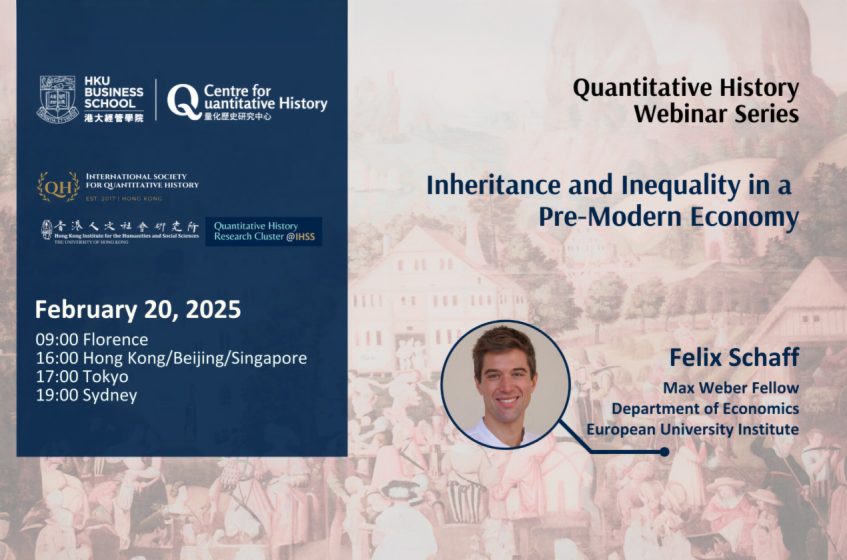
Inheritance and Inequality in a Pre-Modern Economy
Inheritance and Inequality in a Pre-Modern Economy
How do inheritance institutions affect wealth inequality in a pre-modern economy? Felix Schaff of the European University Institute, and his coauthor address this question by exploiting a sharp border between partible and impartible inheritance areas in southwest Germany, together with household-level data from the registers of the 1545 Turk Tax. They find that partible inheritance — the practice of dividing parents’ wealth at death equally among all offspring — substantially increased wealth inequality. This result reflects a three-part mechanism, working through the family, the land market, and the structure of the economy. First, partibility allows more poor people to marry and form households, because of the expectation under the European Marriage Pattern that married couples will support themselves independently. Under impartibility, by contrast, non-inheriting offspring remain unmarried or emigrate, reducing the number of poor households locally. Second, partibility fragments land, generating a large group of land-poor and landless households at the bottom and a re-concentration in the hands of large landowners at the top. Third, land fragmentation in partible areas induces people to undertake risky non-agricultural by-employments, increasing their vulnerability to economic shocks and their incentive to sell land to survive crises. In this Quantitative History webinar, Felix Schaff will explain how the seemingly egalitarian institution of partible inheritance can counterintuitively increase broader inequality in pre-modern context.
Felix’s co-author: Sheilagh Ogilvie (All Souls College, University of Oxford)
Discussant: Jinlin Wei, Assistant Professor of Social Science, Hong Kong University of Science and Technology
Date: February 20, 2025
Time: 16:00 – 17:30
16:00 (Hong Kong/Beijing/Singapore)
03:00 (New York)|00:00 (Los Angeles)|08:00 (London)|17:00 (Tokyo)|19:00 (Sydney)
Venue: Zoom Webinar
Language: English
The Quantitative History (QH) Webinar Series aims to provide researchers, teachers, and students with an online intellectual platform to keep up to date with the latest research in the field, promoting the dissemination of research findings and interdisciplinary use of quantitative methods in historical research. The QH Webinar Series, now entering its fifth year, is co-organized by the Centre for Quantitative History at the HKU Business School and the International Society for Quantitative History in partnership with the Hong Kong Institute for the Humanities and Social Sciences. The Series is now substantially supported by the Areas of Excellence (AoE) Scheme from the Research Grants Council of the Hong Kong Special Administrative Region, China (Project No. [AoE/B-704/22-R]).
量化歷史網上講座系列由香港大學陳志武和馬馳騁教授聯合發起,旨在介紹前沿量化歷史研究成果、促進同仁交流,推廣量化方法在歷史研究中的應用。本系列講座由香港大學經管學院量化歷史研究中心和國際量化歷史學會承辦,及香港人文社會研究所全力支持。從2023年開始,系列得到中國香港特別行政區研究資助局卓越學科領域計劃的重要資助 (項目編號[AoE/B-704/22-R])。
Conveners:
Zhiwu Chen
Chicheng Ma







